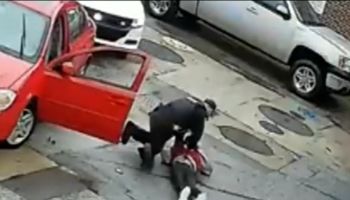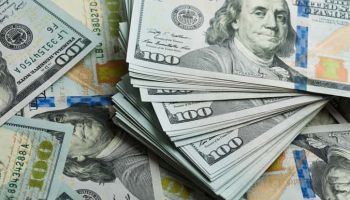BEIJING — Beijing has passed a wide-reaching national security law for Hong Kong, which many fear could be used to override existing legal processes and further erode the city’s civil and political freedoms.
Beijing’s top lawmaking body, the National People’s Congress (NPC), passed the law unanimously on Tuesday morning local time, bypassing Hong Kong’s legislature, Chinese state-run Xinhua news agency reported.
The passing of the legislation has been clouded in secrecy and details of the law itself remain scant. According to Xinhua, the law contains six articles and 66 clauses and will go into effect immediately.
Xinhua previously reported the law would criminalize offenses such as secession, subversion against the central Chinese government, terrorism, and colluding with foreign forces.
A draft had not been made public ahead of its passage, meaning the vast majority of people in Hong Kong have not seen details of a law that will now govern their lives.
In a video address to the United Nations Human Rights Council in Geneva on Tuesday, Hong Kong’s Chief Executive Carrie Lam said the law will “have no retrospective effect” — a major concern for many democracy activists in the city, especially for those facing charges relating to the protests last year.
Additionally Lam said that Hong Kong authorities would exercise jurisdiction over offenses under the law, “except in rare specified situations,” suggesting that some cases would be tried in mainland China.
China’s State Council Information Office said it would will hold a press briefing on the national security law in Beijing on Wednesday morning.
The legislation has been widely criticized by opposition lawmakers in Hong Kong, human rights groups and politicians worldwide, with many saying it will cement Beijing’s direct control over the semi-autonomous city. Many worry it could be used to target political dissidents, activists, human rights lawyers and journalists amid the central government’s continuing crackdown on civil society under Chinese President Xi Jinping.
Activists have vowed to demonstrate against the law on July 1, the anniversary of the territory’s handover from British colonial rule to China in 1997. The day has become an annual day of protests in the city, but for the first time since handover police have not given permission to protesters to hold peaceful demonstrations.
Many in the city have decried the lack of transparency over the legislation. In a letter to the Hong Kong government, Philip Dykes, chairman of the Hong Kong Bar Association said the secrecy of the law was “genuinely extraordinary” and called on the government to make clear how citizens’ minimum rights will be guaranteed.
Joshua Wong, an activist who helped lead massive pro-democracy protests in Hong Kong in 2014 said on Twitter that it “marks the end of Hong Kong that the world knew before.”
He said Hong Kong “will continue to fight for our freedoms and democracy for the city’s next generations. When justice fails, our fight goes on.”
Following news of the legislation passing, Hong Kong democracy group Demosisto, which was formed as a political party by Wong in 2016, said it will “disband and cease all operation as a group given the circumstances.”
It comes after Wong and other activist leaders, Nathan Law and Agnes Chow, said they would be withdrawing from Demosisto because of the threat posed by the law.
Wong and other activists have met with foreign diplomats and testified before the US Congress on Hong Kong’s freedoms since the large-scale pro-democracy protests broke out last summer.
Jimmy Lai, a Hong Kong media tycoon known for his outspoken support of the city’s pro-democracy movement, said the law “spells a death knell to Hong Kong because it supersedes our law and our rule of law.”
“The democratic movement will have to adjust its strategy because it’s a fact that a lot of the people in the democratic movement are scared — either they find ways to leave or emigrate or to sidestep the movement.” Lai, who was arrested in February in relation to a protest march, said he would stay in the city and “keep on fighting.”
Rights group Amnesty International said the legislation “represents the greatest threat to human rights in the city’s recent history.”
“The speed and secrecy with which China has pushed through this legislation intensifies the fear that Beijing has calculatingly created a weapon of repression to be used against government critics, including people who are merely expressing their views or protesting peacefully,” said the head of Amnesty International’s China Team, Joshua Rosenzweig.
Taiwan’s President Tsai Ing-wen said reports on China passing the security law “proves that ‘one country, two systems’ is not credible.” Tsai said that Taiwan will start an office from July 1, which will “provide humanitarian aid for our friends in Hong Kong.”
In Japan, Chief Cabinet Secretary Yoshihide Suga called the passing of the law “regrettable.”
On Monday, US Secretary of State Mike Pompeo announced an end to the exports of US-origin defense equipment and and dual-use technologies to Hong Kong. Pompeo said the move was necessary to protect American national security as the tensions between the US and China continue to escalate.
“As Beijing moves forward with passing the national security law … We can no longer distinguish between the export of controlled items to Hong Kong or to mainland China,” Pompeo said.
This is the first action the US government has taken to upend the special status trade relationship between the US and Hong Kong, following the determination that Hong Kong was no longer autonomous from China due to Beijing imposing the national security law on the city.
It comes as Beijing on Monday said it would impose visa restrictions on certain Americans in response to Washington’s move last week to place similar limits on Chinese officials over Hong Kong













